College Sailing needs a national vision
Published on April 30th, 2025
The 2024-25 collegiate sailing season is near complete, but the final two national championships reflect a troubling trend. In this report by Jesse Andrews, Assistant Coach for the University of Hawai‘i Sailing Team, he contends a national vision is needed before college sailing becomes strictly an East Coast sport:
Since 1997, I’ve had the privilege of coaching the University of Hawai‘i Sailing Team. In that time, we’ve won the coed national championship, the women’s national championship, and I’ve been honored with induction into the ICSA Coaching Hall of Fame.
I do this work not for recognition, and certainly not for money — it’s a part-time role that pays less than I pay junior instructors at our local sailing club. I do it out of love for the sport, for the student-athletes who give everything for their team, and for the belief that college sailing should be accessible, competitive, and truly national.
But watching what college sailing at the National level has become in recent years is making it increasingly difficult for teams located west of the Mississippi to believe they have a fair shot.
This year, the University of Hawai‘i wasn’t selected for the Coed National Championship – not even mentioned – despite earning more College Sailing Ranking (CSR) points than several teams that were.
With 335.5 points and a #30 ranking, we felt reasonably confident in making a 36-team field. We ranked above many selected teams like USF (324), Webb Institute (316.5), and Connecticut College (291) — and well ahead of Florida State University, which was listed at #44 with just 251.5 points.
Is the CSR ranking system flawed? Or is the real issue the selection process itself?
Our A Division team even won their division at the national qualifiers, beating Stanford for the first time in decades. That regatta came down to the final leg of the final race, and while a penalty cost us a top-two finish overall, the strength of our performance was undeniable. Still, we were overlooked. And that’s not an isolated oversight, it’s part of a troubling trend.
Of the 36 teams selected for Nationals, only two West Coast schools qualified through their conference champs. None were selected by the Inter-Collegiate Sailing Association Selection Committee. Meanwhile, 24 teams from the East Coast were selected by the committee, many with weaker CSR rankings and, in my opinion, some less competitive results.
When the CSR system was introduced in 2022, it offered a glimpse of transparency. For geographically disadvantaged programs like ours, it was a meaningful way to gauge national competitiveness and stay in the conversation even without an automatic bid. But if those rankings aren’t used, or worse, are ignored, then what purpose do they serve?
We compete in regattas across 15 weekends each year, spending tens of thousands of dollars and countless hours flying just to prove we belong. If our performance is discarded without a word, how can the system claim to be fair?
Traveling from Hawai‘i is not like flying from California to New York or up and down the East coast. A single East Coast trip requires leaving on a Wednesday night and returning Monday, at double the cost and over 20 hours of round-trip travel.
Sailing on the West Coast is a major commitment for many teams. Not just in terms of distance, but also logistics and cost. Weekends often involve long hours of travel, with some teams trailering boats up and down the West coast.
Unlike many East Coast programs with deep-rooted alumni networks and sizable endowments, most West Coast and inland teams operate on grassroots support: fundraising, team dues, and occasional donations.
College sailing has grown increasingly East Coast-centric — and the composition of the selection committee only reinforces that. With four of five members being alumni of Yale, Harvard, and Georgetown, it’s fair to ask: does this committee truly represent the national scope of college sailing?
We’re not asking for special treatment. We’re asking for a transparent, balanced, and inclusive process. One that rewards performance, not proximity. One that values growth across all regions. One that recognizes what it actually takes to build and sustain a competitive program outside the East coast.
Until then, teams like the University of Hawai‘i will continue to be marginalized. It’s time for college sailing to steer toward the future before too many programs are left behind.
2024-25 Season
Fall National Championships:
November 9-10: Women’s and Open Singlehanded Nationals – St Petersburg, FL
November 15-17: Match Race Nationals – Oyster Bay, NY
Spring National Championships:
April 24-26: Open Team Race Nationals – Cranston, RI
April 27-28: Women’s Team Race Nationals – Cranston, RI
May 20-23: Women’s Dinghy Nationals – St Marys City, MD
May 27-30: Open Dinghy Nationals – St Marys City, MD



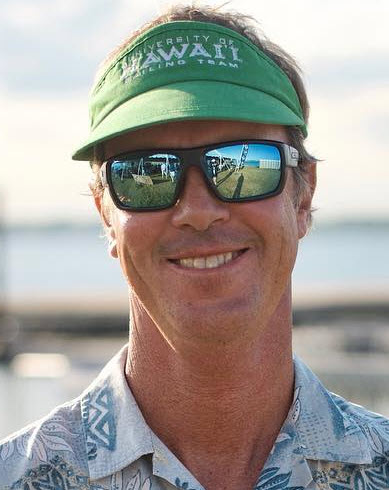


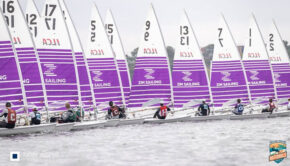
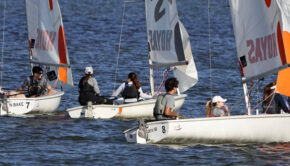
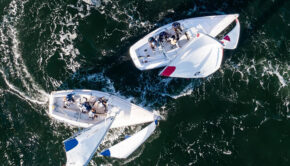
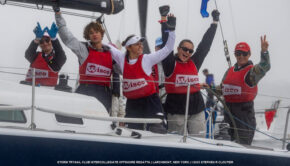
 We’ll keep your information safe.
We’ll keep your information safe.